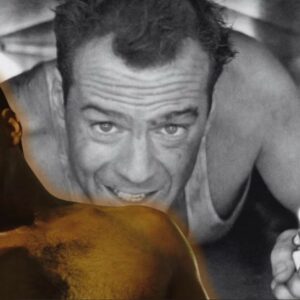When you think of soul music, one name inevitably rises above the rest: Aretha Franklin. Crowned the “Queen of Soul,” Aretha’s powerful voice, emotive delivery, and innovative style transformed the music industry. From gospel-infused vocals to timeless melodies that made listeners feel every word, her voice was a cultural force, breaking boundaries and creating new standards. With her signature sound and fearless approach, Franklin shaped what it means to be a vocal artist, setting the bar high for future generations and inspiring musicians across genres.
Unique Vocal Techniques
Aretha’s voice wasn’t just beautiful; it was a masterclass in control, passion, and improvisation. Her roots in gospel music informed her distinctive style, which incorporated techniques like soaring vocal runs and effortless glides. These were more than just vocal gymnastics; each note was rich with meaning and authenticity, connecting the listener to the lyrics’ emotions.
Her command over dynamics was something special, too. She could go from a soft whisper to a powerful belt with ease, her voice embodying every nuance of the message. Franklin’s improvisational skills added another layer, giving each performance a freshness and spontaneity that made her renditions unmistakably hers. This ability to improvise yet remain controlled allowed her to inject her own spirit into her performances, setting her apart from contemporaries who might have had strong voices but lacked her depth of interpretation.
Influence on Contemporary Artists
Aretha’s influence has stretched far beyond soul music, touching genres from pop to jazz to rock. Her vocal style provided a blueprint for countless artists who came after her. She showed vocalists how to express raw emotion, to deliver a performance that was more than technically perfect but also genuinely felt. You can hear echoes of her style in the work of artists like Alicia Keys, Beyoncé, and Jennifer Hudson—artists who are celebrated not just for their vocal power but for their ability to convey authenticity through song.
Even in genres that differ from her own, Aretha’s legacy lives on. Artists like Adele and Amy Winehouse have cited her as a major influence, their music showing traces of her phrasing and emotive power. In pop, her influence has broadened vocal possibilities, with singers drawing from her soul-baring performances to add depth and vulnerability to their music.
Redefining Vocal Standards
Before Aretha, vocal standards were largely defined by technical skill and melodic purity, with little room for the unfiltered emotion she brought to the stage. But Franklin’s approach raised the bar, redefining what it meant to be a successful singer. She set new standards for vocalists, demonstrating that the strength of one’s voice lies not only in range and control but also in expression and versatility.
Her impact was profound, reshaping the expectations of what a vocalist should be. This was particularly influential for Black artists and female vocalists, who found in Aretha’s work a model of freedom, self-expression, and authenticity. She empowered generations of vocalists to embrace their own unique voices, to tell their stories unapologetically, and to perform in ways that went beyond what was previously accepted in mainstream music.
Enduring Legacy in Music Education and Culture
Aretha Franklin’s influence extends into music education, where her techniques have become integral to vocal training. Instructors now teach her approach to dynamics, phrasing, and emotional delivery, recognizing these as essential components of a well-rounded singer’s toolkit. In many ways, she has shaped the foundation of modern vocal education, with her techniques forming part of a curriculum designed to bring out the depth and soul in each singer.
Beyond formal music training, Aretha’s legacy is embedded in cultural memory. She opened doors for vocalists of all backgrounds, becoming a symbol of empowerment and self-expression. Her impact is seen not only in the way people sing but in how they interpret music. To aspiring musicians and seasoned artists alike, she remains a beacon of what is possible when you push vocal boundaries.
Conclusion: Aretha’s Lasting Mark on Music
Aretha Franklin left an indelible mark on the music industry, one that transcends genres and generations. Her influence is evident in the vocal styles of today’s artists, in the higher standards for vocal performance, and in the passionate way singers connect with their audience. The “Queen of Soul” transformed what it means to be a vocalist, setting a legacy of authenticity, creativity, and power that continues to inspire artists around the world. Her voice may have been stilled, but her influence will resonate for generations to come, reminding us of the heights that can be reached when you sing with both skill and soul.





